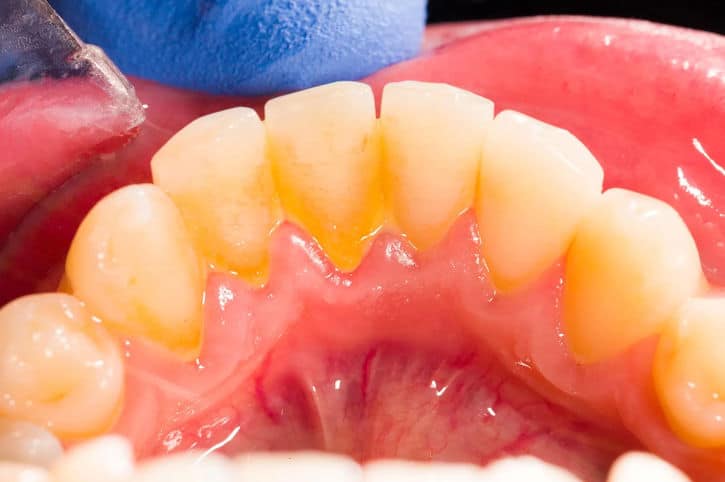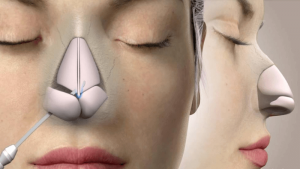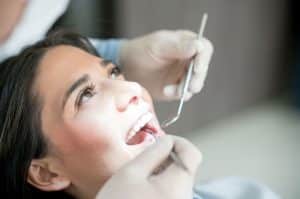Keeping your teeth and mouth clean is very important for dental health. When you do not pay attention to it, you may face several dental conditions. One of them is dental plaque buildup. In this article, we will talk about the causes of dental plaque, how to prevent it, and some treatment options for avoiding it.
What is Dental Plaque?
Let’s start by explaining what dental plaque is. It is a sticky substance that forms on teeth with food particles and bacteria. It is a common situation that is experienced by many people. However, if left untreated, dental plaque can cause dental problems.
What Causes it?
Poor oral hygiene is one of the causes that might create dental plaque. Plaque can accumulate on your teeth if you neglect your oral hygiene and do not brush and floss on a regular basis. Poor nutrition is another source of this issue. A diet heavy in sugar, acid, and carbs promotes plaque development. Smoking is also a contributor to tooth plaque. Smokers are more prone to acquire this ailment than nonsmokers.
The Difference Between Plaque and Tartar
When plaque is not removed, tartar accumulates on your teeth. The plaque that stays on teeth for so long hardens to tartar. It is possible to get rid of plaque by brushing and flossing your teeth, but once it becomes tartar, it is hard to remove it. You may need to visit a dentist to get professional treatment. Keep in mind that untreated tartar can lead to tooth decay and gum diseases.
Symptoms and Risks of Dental Plaque
There are some symptoms of dental plaque. These signs include a fuzzy feeling on the teeth, bad breath, yellow teeth, and red or swollen gums. If you think you have these symptoms, you should consult a dentist to minimize the effects and potential problems related to this condition.
Potential Health Risks Associated with Dental Plaque
Dental health is as important as your overall health since dental problems can lead to other health conditions if left untreated. When plaque builds up on your teeth and is not removed, it can lead to dental problems like cavities and gum diseases. Untreated cavities and gum diseases can even lead to tooth extraction. Besides, serious stages of cavities and gum diseases cause infections to spread to other parts of the body, leading to cardiovascular diseases, heart disease, and brain diseases. That is why, being aware of dental plaque and learning how to treat it is very important to avoid its potential health risks.
Prevention Methods for Dental Plaque
By taking basic precautions, it is possible to avoid dental plaque and the issues that it causes. Below are the top precautions you can take to prevent plaque formation.
Maintaining Good Oral Hygiene
Maintaining good oral hygiene is a must for having strong and healthy teeth and preventing dental problems. As it is recommended, brushing or flossing your teeth regularly can help you achieve this.
For good oral hygiene, you need to brush your teeth at least twice a day for two minutes. Similarly, it is recommended to floss your teeth daily since it cleans between teeth and prevents plaque buildup as well. In addition to brushing and flossing, rinsing your mouth after eating can remove food particles and bacteria, which also helps prevent this problem.
Regular Dental Checkups and Cleanings
Another method of plaque prevention is regular dental checkups and cleanings. Even though you brush and floss your teeth regularly, you might still face dental plaque. In this case, getting professional help from a dentist can solve this problem. It is recommended to schedule a dentist appointment twice a year.
During dental check-ups, the dentist examines your mouth and treats dental problems. If you are dealing with this problem, the dentist can suggest dental cleaning. During a dental cleaning, the dentist will polish your teeth thoroughly with special tools and remove plaque.
Proper Nutrition for Oral Health
What you consume is very important for your oral health. If you constantly consume foods that are high in carbohydrates and sugar and do not pay attention to your oral hygiene, you may face many dental problems, including plaque buildup.
That is why, you should pay attention to consuming the right nutrition for oral health. A diet low in sugar, high in protein, fiber, and calcium is best for keeping your teeth healthy and avoiding plaque buildup.
Dental Plaque Treatment Options
To avoid the oral health problems associated with it, you must get dental plaque removed. There are two methods for removing tooth plaque. Professional dental cleanings and at-home plaque removal treatments are examples of this.
Professional Dental Cleanings
Visiting a dentist twice a year is one of the best methods to maintain oral health and prevent dental problems. For a better solution for removing dental plaque, you should schedule a dentist appointment. During a dental visit, the dentist examines your mouth and professionally cleans your teeth with specialized tools. To get more information about professional dental cleanings, you should consult a dentist.
At-Home Plaque Removal Techniques
It is possible to remove dental plaque at home with some removal techniques. The first dental plaque removal technique is oil pulling. According to the researchers, oil pulling can be helpful for decreasing oral bacteria levels. In addition to decreasing bacteria, it helps to enhance gum health and prevents dental problems like tooth decay and bad breath.
Also, baking soda can be used as an at-home plaque removal technique. A toothpaste that contains baking soda is more effective in removing plaque than other toothpastes that do not contain baking soda.
Advanced Treatment Options for Severe Plaque Buildup
Advanced therapy techniques are now available to cure severe plaque accumulation. For instance, if you have severe plaque buildup, a non-surgical periodontal treatment called scaling and root planing can be used to remove plaque. First, the dentist removes the plaque and tartar and then smooths your teeth’s roots to prevent bacteria from gathering easily.
You can reach our previous article from https://smileteamturkey.com/blog/the-pros-and-cons-of-dental-implants-vs-crowns/






